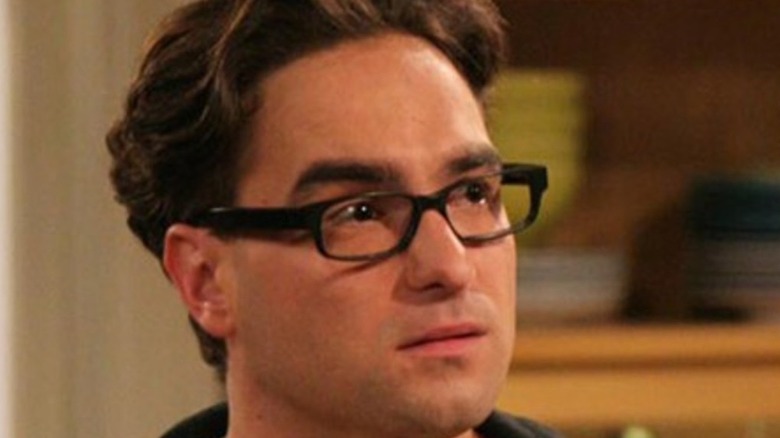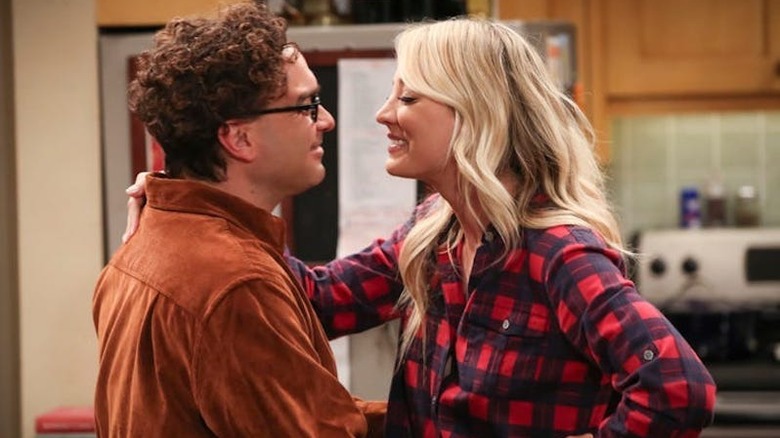The Leonard Theory That Changes Everything On The Big Bang Theory
"The Big Bang Theory," sitcom created by Chuck Lorre and Bill Prady, ran for 12 full seasons — with nearly 300 total episodes — from 2007 to 2019. earning fans across the world throughout its tenture. The series begins with Sheldon Cooper (Jim Parsons) and Leonard Hofstadter (Johnny Galecki), two theoretical physicists with high IQs, who find they have a new neighbor across the hall in their apartment building — aspiring actress Penny (Kaley Cuoco), to whom Leonard is instantly attracted. Soon, Penny becomes friends with the pair along with their other scientist friends, including aerospace engineer Howard Wolowitz (Simon Helberg) and astrophysicist Rajesh Koothrappali (Kunal Nayyar). Eventually, their friend group expands with Bernadette (Melissa Rauch), a microbiologist and Howard's eventual wife, and Amy (Mayim Bialik), a neurobiologist and Sheldon's love interest.
Over the course of the 12 seasons, we see the friends go through a lot, including friendship ups and downs, various stages of their careers and eventual marriages of several of the main characters. In the end, we even get to see Sheldon and Amy win the Nobel Prize in Physics. Naturally, with that many seasons, "The Big Bang Theory" has millions of devoted fans — fans who often discuss some pretty interesting theories about the series. In fact, there's one theory in particular involving Leonard that, if it were true, would change everything about "The Big Bang Theory."
The Big Bang Theory might have been one long dream
There are plenty of theories floating around the Internet about "The Big Bang Theory," and one of them is pretty huge. The theory posits that everything that happens in the show's entire run, after its initial first episode, is all just a dream of Leonard's. After meeting Penny and becoming instantly infatuated with her, Leonard dreams up a life the two could possibly have together, which, as fans know, includes an on-and-off relationship that eventually leads to their engagement, marriage and Penny's pregnancy.
The article points out that the show frequently utilized fantasy sequences, thus implying that the notion of the entire thing being one long fantasy sequence isn't entirely out of the realm of possibility. However, besides that speculation, the theory really doesn't hold much weight, as there is no concrete evidence pointing to this theory, as intriguing as it is.
While this Leonard theory isn't very plausible, it's far from the only fascinating theory about "The Big Bang Theory," including theories like that Howard's mother doesn't exist or that Penny is a spy. However, with the series over, there's no way to figure out if any of them are true, and fans will just have to revisit their favorite series to try and look for clues about these far-fetched theories.

